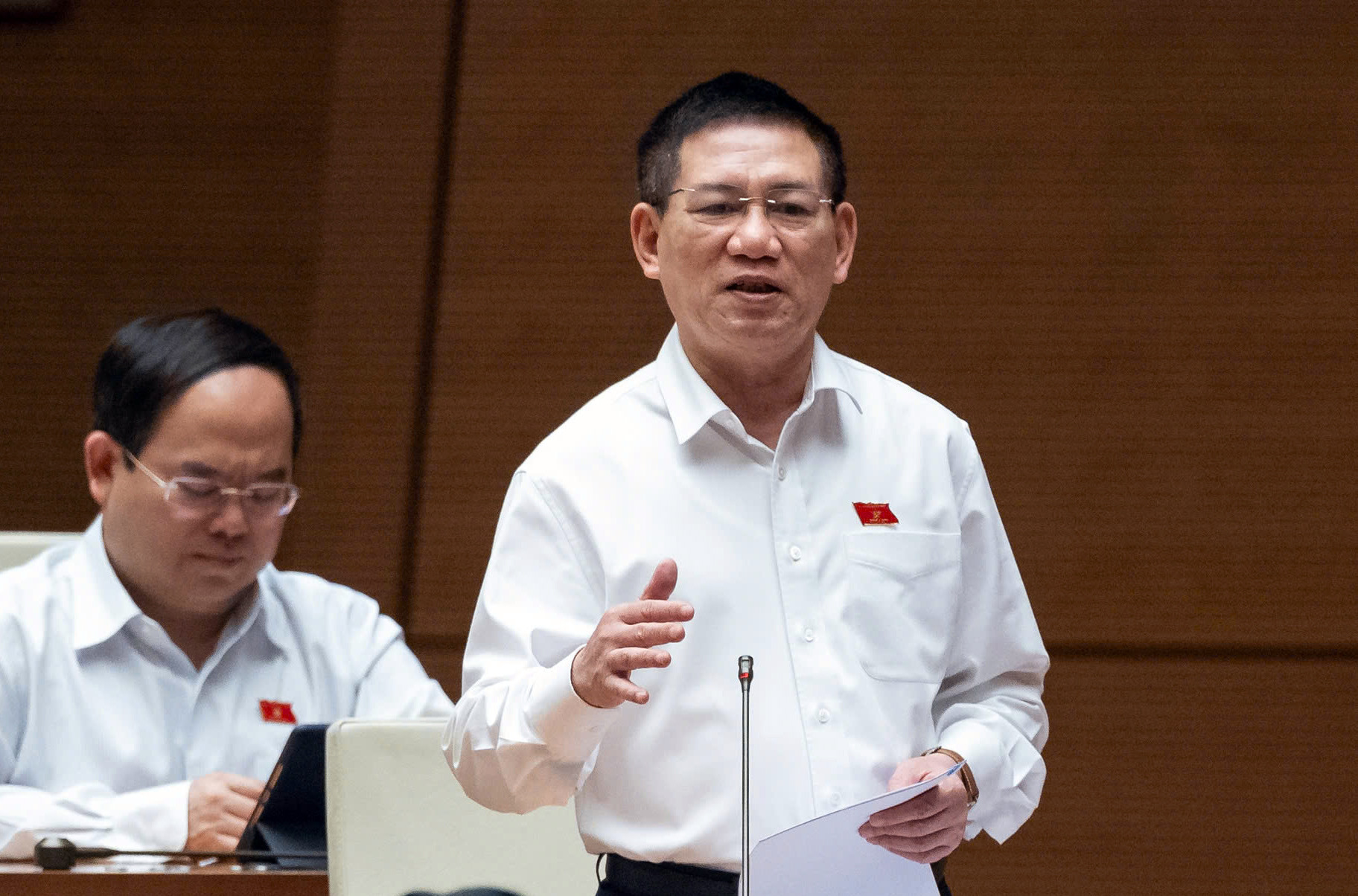
Deputy Prime Minister Ho Duc Phoc has stated that Vietnam's economy will expand to a scale of trillions of USD in the future, far surpassing the current figure of around 500 billion USD. While the GDP may reach 470 billion USD this year, it is expected to grow three to four times in the coming years.
After the Q&A session with the Governor of the State Bank of Vietnam, Nguyen Thi Hong, Deputy Prime Minister and Minister of Finance Ho Duc Phoc addressed additional issues related to monetary and fiscal policies, with a particular focus on the management of the gold market.
Gold as a safe haven for idle cash
According to Deputy Prime Minister Ho Duc Phoc, the import-export activities of gold are currently regulated by Decree 24 on gold trading management. However, with changing market dynamics, the Prime Minister has directed updates to Decree 24, specifically regarding the import, export, and trade of gold to facilitate the domestic market’s growth.
Regarding gold market regulation, Deputy Prime Minister Phoc noted that the price of SJC gold recently rose by 18 million VND per tael, a 25% increase compared to international gold prices, but has since adjusted to a 3-4 million VND difference.
“The high gold prices, as the Governor of the State Bank of Vietnam explained, are due to several factors such as global price increases and a demand-supply imbalance. Additionally, the real estate market is stagnant, bank interest rates are low, and there is a general hesitance to deposit money in banks. With challenges in business production and risks in corporate bonds, gold has become a safe haven for idle cash,” Deputy Prime Minister Phoc explained.
For future management of the gold market, he emphasized the importance of legal compliance and transparency in gold trading, with information technology used to monitor gold companies and shops. He also highlighted ongoing efforts to curb gold smuggling, noting that authorities recently uncovered two smuggling rings involving 6 tons of gold, with further incidents detected at Noi Bai International Airport in November.
“While gold is no longer a standard for currency, it remains a precious metal and a haven for idle funds, and will thus be tightly regulated,” the Deputy Prime Minister stressed.
Deputy Prime Minister Phoc also mentioned that recent market management inspections led to temporary suspensions of gold shops unable to verify the origin of their materials. However, he cautioned that enforcement should only apply when evidence of smuggling is found, noting that some materials may come from family heirlooms or prior reserves.
“I would like to emphasize that we should only act when it is clear that the gold is smuggled. If it cannot be proven as smuggled, then we have no grounds to penalize these gold shops,” he said.
Reaching 5,000 km of expressways by 2030
Addressing questions on fiscal and monetary policies, Deputy Prime Minister Phoc highlighted the government’s successful fiscal management in recent years. He noted that proactive and flexible monetary policy has been complemented by an expanded and reasonable fiscal policy.
“For instance, over the past four years, we exceeded budget revenue by 1 trillion VND annually, with each year surpassing the previous one. At the same time, tax reductions for citizens and businesses amounted to 800 trillion VND, so we have exceeded the budget by almost 2 trillion VND,” the Deputy Prime Minister noted.
In terms of monetary policy, he cited recent actions to stabilize the banking system, including addressing two banks with zero-valued shares and preparing to handle two more.
This year, GDP growth is projected to reach nearly 7%, with a CPI rate of 3.88% and public debt at 37%. Government revenue has reached 99.94% of the estimate approved by the National Assembly, an increase of 255 trillion VND over last year, which could provide an additional 300 trillion VND in funding for public projects.
On infrastructure investments, Deputy Prime Minister Phoc shared that the government aims to achieve 5,000 km of expressways by 2030. The North-South high-speed railway will require an estimated 67 billion USD, while other major initiatives, including energy transition and climate change programs, will depend heavily on large-scale credit sources.
“Our economy will eventually reach a scale of several trillion USD, not just 500 billion USD as it is now. This year, we may reach 470 billion USD, but in the near future, this will grow by three to four times,” Deputy Prime Minister Phoc emphasized.
Quang Phong, Tran Thuong, Thu Hang